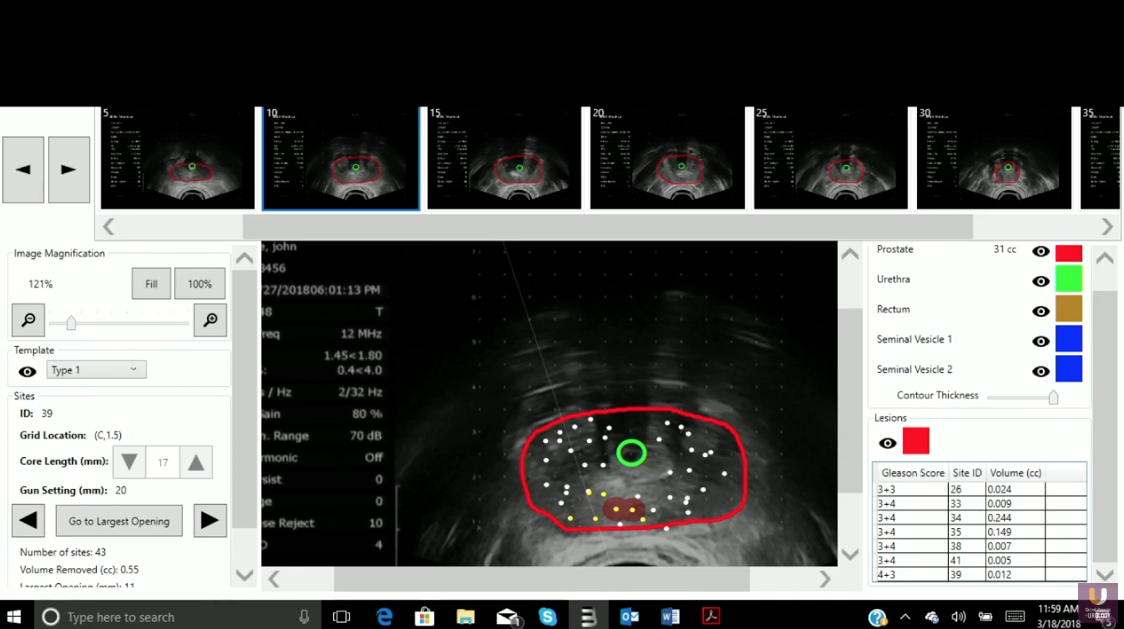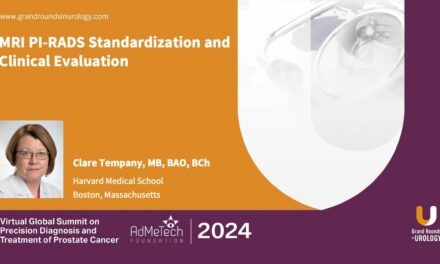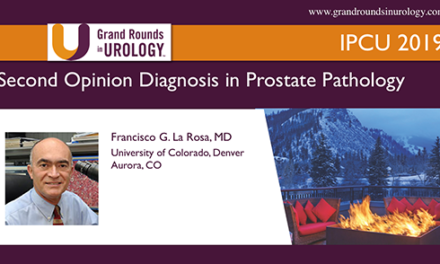M. Scott Lucia, MD, presented “Pathologist’s Perspective on Focal Therapy” during the 24th Annual Southwest Prostate Cancer Symposium on April 13, 2019 in Scottsdale, Arizona.
How to cite: Lucia, M. Scott. “Pathologist’s Perspective on Focal Therapy” April 13, 2019. Accessed Jan 2026. https://grandroundsinurology.com/pathologists-perspective-on-focal-therapy/
Pathologist’s Perspective on Focal Therapy – Summary:#
M. Scott Lucia, MD, defines the ideal candidate for targeted focal therapy of the prostate. He discusses the limitations of transrectal ultrasound- and multiparametric MRI-guided biopsies for determining focal therapy eligibility, as well as evidence regarding template-guided transperitoneal mapping biopsies for improved tumor assessment.
Abstract:#
Focal therapy (FT) of the prostate is a treatment option for low-intermediate risk prostate cancer that potentially offers good cancer control with minimal treatment-related morbidities. In addition to clinical features and imaging, the pathologic features seen through biopsy, including grade, location, and tumor extent, are important for determining FT eligibility. Optimal candidates for FT include patients with unilateral, unifocal, low-volume tumors seen on multiparametric magnetic resonance imaging (mpMRI) and those with a Gleason score of less than or equal to 3+4.
Transrectal ultrasound (TRUS)-guided biopsies by themselves are inaccurate for determining the precise location and grade of tumors. Combining systematic TRUS biopsies with mpMRI-fusion biopsies affords improved ability to identify significant prostate cancers. Unfortunately, mpMRI and TRUS biopsies still have limited sensitivity, specificity, and negative predictive value for clinically significant disease, and may underestimate tumor burden.
Template-guided transperitoneal mapping biopsies (TTMBs) provide the most accurate assessment of tumor grade, location, and volume. However, TTMBs are technically more difficult and costly to perform.
Early data on TTMB, as well as other studies, have found significant rates of upgrading associated with TTMB when compared with TRUS biopsy and rates of identification of significant bilateral tumor foci undetected by mpMRI+TRUS biopsies.
For post-FT monitoring, mpMRI+TRUS biopsies are recommended at least after 12 months. Long term follow-up of TTMB, the roles of newer 7T MRI technology in determining focal therapy eligibility, as well as the roles of biomarkers in therapeutic monitoring have yet to be determined.
About the Southwest Prostate Cancer Symposium#
The Southwest Prostate Cancer Symposium (SPCS) is a multi-day conference that seeks to educate urologists, radiation oncologists, medical oncologists, and other healthcare professionals involved in the treatment of prostate cancer. The topics focus on current technical aspects of diagnosis and treatment of localized and advanced disease, particularly regarding imaging, technology, and training in the related devices. Dr. Lucia presented this lecture during the 24th SPCS in 2019. In 2020, the 25th SPCS will also offer training sessions involving imaging, scanning, and prostate cancer treatment related devices on site. Please visit this page in order to register for future SPCS meetings.
ABOUT THE AUTHOR
M. Scott Lucia, MD, is a Professor and Vice Chair of the Department of Pathology, the Chief of Genitourinary and Renal Pathology, and the Director of Research Histology at the University of Colorado Anschutz Medical Campus School of Medicine in Aurora, Colorado. He also serves as the Director of the Pathology Shared Resource at the University of Colorado Cancer Center.






